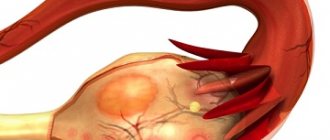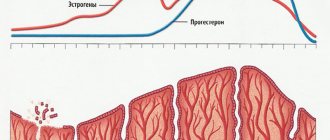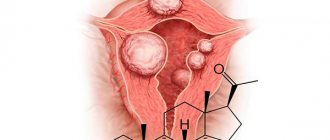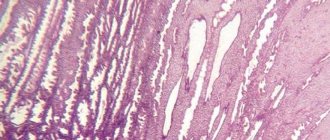Recently, many adherents of healthy eating have been talking about maintaining intestinal microflora. It's very simple: you need to eat fresh foods and also take in beneficial bacteria. Let's figure out what foods contain probiotics and prebiotics for the intestines and why they are needed.
About 100 trillion different bacteria live in the human body, a tenth of which is microflora. The rest are cells of microorganisms that live not only outside, but also inside a person. According to scientists, the human body contains about 2 kilograms of microbes that interact with cells and tissues.
What are prebiotics and probiotics for the gut?
Probiotics are live microorganisms that can be included in food products, for example, yogurt and kefir, medicines or dietary supplements. Their main task is to normalize the intestinal microflora, destroying bad bacteria.
Prebiotics are substances that are needed for the growth and development of good bacteria. If there are a lot of prebiotics in the body, beneficial bacteria feel comfortable and protect you from negative environmental factors.
The list of foods with prebiotics is long. These components are found in large quantities in fruits (bananas), vegetables (onions, corn, garlic, beans, peas), as well as in dairy products, bran and cereals.
Prebiotics include organic compounds:
- oligofructose;
- inulin;
- apple pectin;
- calcium pantothenate;
- lactulose;
- dietary fiber (fiber);
- algae extracts;
- glutamic acid;
- carotenoids.
When choosing probiotic yogurts in the store, pay attention to the number of lactic acid bacteria. In a high-quality drink there will be at least 10 7 CFU per 1 gram of product.
Causes of deviation in the first phase of the menstrual cycle
The most significant disorders that are important for diagnosis are a decrease or increase in the concentration of follicle-stimulating hormone and estradiol in the blood. All other indicators will indicate the reasons for their changes.
Increased level
Follitropin increases in the following conditions in women:
- age-related decline in ovarian function, as well as premature ovarian failure syndrome;
- tumor and cystic changes in the gonads and pituitary gland;
- congenital genetic abnormalities;
- irradiation, use of antitumor drugs;
- infections, injuries, poisoning, including alcohol.
High levels of estradiol occur with ovarian tumors and endometriosis. One of the diseases is characterized by prolonged retention of the follicle in the ovary. This syndrome is called follicular persistence and occurs when there is a lack of luteinizing hormone.
The estrogen level also increases with the uncontrolled use of hormonal drugs for the treatment of menopause or overdose during artificial insemination programs. The cause of the disorders is increased function of the thyroid gland.
Manifestations of excess estrogen levels are most often heavy menstruation, spotting between periods, tension and pain in the mammary glands. Possible swelling and depression.
Low performance
The formation of follitropin is inhibited by:
- pituitary insufficiency, it occurs in women, including after difficult childbirth;
- inflammation and vascular disorders in the pituitary-hypothalamic region;
- operations, injuries;
- increased release of prolactin;
- decreased function of the hypothalamus due to a chromosomal abnormality - Kallmann syndrome;
- increased levels of estrogen and testosterone;
- tumors of the ovaries, adrenal glands, pituitary gland;
- polycystic ovary syndrome.
Estrogen deficiency is accompanied by a delay and decrease in the volume of menstruation. With severe estradiol deficiency, weakness, hot flashes, sweating, mood swings, and vaginal dryness appear. A lack of the main hormone of the first phase of the menstrual cycle is caused by:
- age-related decline of ovarian function, menopause;
- irradiation of the glands, operations and traumatic injuries, neoplasms;
- resistance of ovarian tissue to the action of follitropin;
- genetic disorders of the development of the reproductive system;
- chronic inflammation, infections;
- disruption of the pituitary gland and hypothalamus;
- liver cirrhosis;
- insufficiency of hormonal activity of the pituitary gland and thyroid gland.
We recommend reading the article about vitamins for a woman’s hormonal levels. From it you will learn about the reasons for normalizing hormonal levels in women, vitamins for recovery, what cyclic vitamin therapy is, and a diet for normalizing hormonal levels.
And here is more information about the hormonal background in women.
Hormones in the first phase of the cycle prepare the follicle for ovulation. This period lasts about 2 weeks, starting from the 1st day of menstruation. It is regulated by pituitary hormone follitropin and estradiol. For diagnosis, it is necessary to determine them in the blood, as well as indicators of lutropin, prolactin, thyroid function, and adrenal glands. The data obtained helps to determine the cause of infertility or menstrual irregularities.
The role of pro- and prebiotics in the body
The main function of the intestines is to protect the body, which is impossible without good bacteria. This organ protects a person from poisoning, infections and eating disorders. Each organism has an individual intestinal microclimate - a community of bacteria that interact with each other and control everything that gets inside.
If harmful bacteria or other irritants enter the intestines, prebiotics and probiotics eliminate them, improving internal processes.
They supply the body with energy, biologically active substances, vitamins, regulate the digestion process and produce vitamin K, necessary for blood clotting. Due to stress, serious illness or treatment with antibiotics, bad bacteria penetrate the intestines and multiply, fighting the microflora. As a result of this struggle, there are fewer good bacteria, which affects your condition: the stomach begins to growl, flatulence appears, the digestion process is disrupted, which leads to nausea, diarrhea, or, conversely, constipation.
This greatly affects your immunity: it weakens and cannot fully protect against viruses coming from the outside, so you get sick more often.
Useful video
Watch the video about the menstrual cycle:
Similar articles
- Tests for female hormones: when, on what days...
It is necessary to take tests for female hormones if you suspect a hormonal imbalance or when planning a pregnancy. It is important to know exactly which exams to take and on what days, and how to prepare properly in order to get accurate results. How long does it take to prepare tests? Which are considered normal, interpretation of results for female sex hormones. Read more - Progesterone. It's a phase two hormone, so...
Before taking hormone tests, it is very important to find out exactly the days when to do it correctly, especially for women. Recommendations also include questions about whether you can eat and drink alcohol, and how general preparation is going. What else is not possible? How does sex affect blood tests? Read more
- Hormone tests when planning pregnancy...
It is highly advisable to take hormone tests when planning a pregnancy. They especially need to be checked for those who have been unable to get pregnant for a long time. Indicators of the thyroid gland in the blood, as well as pituitary hormones, are important. Read more
- Hormonal levels in women: normal, disturbances and failures...
In many ways, the reproductive system is influenced by hormonal levels in women. The norm is regular menstruation, pregnancy, and good health. If failures occur after 40 years, it may be menopause or menopause. There are also psychological reasons that lead to disorders and low hormonal levels. Read more
- Vitamins for women’s hormonal levels: what…
A doctor can better select vitamins for a woman’s hormonal levels based on her medical history and tests. There are both specially designed complexes for recovery, and those selected individually to normalize the hormonal levels of women. Read more
Pros and cons of probiotics and prebiotics
In recent years, the topic of restoring microflora with probiotics and prebiotics has become very popular, so many nutritionists and adherents of a healthy lifestyle are confident in their benefits. Many people take drugs in capsules, powders, and “live” yoghurts to eliminate dysbiosis, strengthen the immune system and cleanse the liver.
However, there are those who are skeptical about probiotics and prebiotics. They are confident that the diagnosis of “dysbacteriosis” is a myth, and tests to determine it are a simple marketing ploy, since the ratio of bacteria “out” is not related to what lives inside a person. Skeptics do not consider it necessary to help the intestines, since they can easily recover naturally, and the effectiveness of good bacteria has not been proven.
The third camp understands the benefits of pro- and prebiotics, but is not sure that they reach the intestines. People argue that most of these bacteria are killed by hydrochloric acid, so there is no point in spending money on products containing them.
What happens in the first half of the cycle
With the onset of the first day of menstrual bleeding, the follicular phase begins. It was named so because the formation and maturation of follicles occurs in the ovary, one of which is dominant, that is, the main one. It contains the egg. Having on its surface the maximum number of receptors (perceiving proteins) for the hormone follitropin has this advantage.
It continues to produce estrogen throughout phase 1, while less active follicles die.
In the uterus, after menstrual rejection of the inner layer, increased restoration begins - proliferation (cell division with thickening of the endometrium). With a 28-day cycle, the first phase lasts approximately 2 weeks.
All these processes provide and regulate:
- hypothalamic gonadoliberin (enters the pituitary gland through the funnel, does not appear in the blood);
- pituitary gonadotropins – luteinizing, follicle-stimulating;
- ovarian estrogens (mainly estradiol).
Of all these hormones, in the first phase of the cycle, the level of follicle-stimulating hormone and estradiol gradually increases under its influence. All others, including the female steroid progesterone, remain low until ovulation occurs. After the follicle ruptures and the egg is released, the ovulatory phase begins, and the first (estrogenic, follicular) phase ends.
We recommend reading the article about what is important to know before taking hormone tests. From it you will learn about general recommendations before taking hormone tests, preparing for blood collection, and what you should absolutely not do.
And here is more information about tests for female hormones.
When you need beneficial bacteria
Probiotics help normalize intestinal function, and prebiotics (fiber) speed up the passage of food and its digestion in the intestines.
Probiotics are prescribed for irritable bowel syndrome, inflammatory diseases, diverticular disease, and for the prevention of antibiotic-associated colitis they can be used together with antibiotics on the recommendation of a doctor.
Be careful: self-medication not only will not solve the problem, but can also harm the body. Prebiotics are contraindicated in cases of intestinal stenosis, such as Crohn's disease, and an allergic reaction may occur to probiotics.
Many people try to stop diarrhea with probiotics. It is important to establish the cause of the disorder, otherwise you may miss the onset of a serious illness. In addition, each bacteria has its own “specialization”. For example, lactobacilli suppress putrefactive processes in the intestines and stimulate the immune system. However, without a doctor’s recommendation, it is not worth treating diseases with them: the effectiveness of certain microorganisms has been proven, and some bacteria are only being studied by specialists.
Also, microorganisms that inhabit the intestines secrete gamma-aminobutyric acid, which affects your mood. When the microbalance is normal, your mood improves and stress goes away.
Evidence-based effectiveness
Abroad, the manufacturer is required to prove the effectiveness of its products. For example, if beneficial bacteria have been added to a new yogurt, this does not mean that the product is healthy. In Russia, the law does not oblige manufacturers to conduct serious research, but there must be an evidence base.
For example, a well-known food manufacturer conducted double-blind, placebo-controlled studies involving 600 people. One part of the experiment participants drank a “pacifier”, and the second part drank a lactic acid product with a probiotic. When the study ended, an independent organization compared the participants' medical histories and found that people who consumed the probiotic product had less illness. So probiotics do strengthen the immune system and can speed up the healing process, but their effectiveness and safety in a specific product must be proven.
What tests should be taken for female hormones?
Let's look at the main types of hormones and the rules for taking them.
Estrogens
The main representative of this group of hormones is estradiol. It is he who influences:
- Development of the female body.
- Maturation of the egg.
- Formation of vaginal lubrication.
- Regular periods.
- Formation of a figure according to the female type.
- Mood.
Insufficient performance leads to menstrual irregularities, tearfulness, swelling and deterioration of appearance. Excess leads to fat deposition and the formation of ovarian tumors. Typically, blood from a vein is taken on days 21-22 of the menstrual cycle, unless the doctor prescribes a different time.
Another representative of this group of hormones is estriol. It is necessary for the normal course of pregnancy and promotes the formation of mammary ducts. The placenta and fetal liver are involved in the production of estriol. The level of this substance is necessary to determine the functioning of the fetoplacental system and intrauterine pathologies.
The study is carried out from 14 to 20 weeks of pregnancy, unless otherwise directed by the doctor.
Progesterone
This hormone is very important for the functioning of the female body. It is responsible for the regularity of menstruation and is necessary for the normal course of pregnancy. Its activity is affected by ovulation. After the release of the egg, a temporary gland is formed at the site of the burst follicle - the corpus luteum, which takes part in the production of progesterone.
It is the second half of the menstrual cycle that is most effective for research (19-21 days), provided that you have regular periods. Also, after conception, the corpus luteum produces progesterone to maintain pregnancy. This indicator is necessary for diagnosing infertility and prescribing hormonal therapy in the early stages of pregnancy. After 12-14 weeks it is produced by the placenta. Hormone deficiency indicates a risk of miscarriage.
Progesterone is important not only for the reproductive system. Deviations from the norm are caused by:
- Changes in hormonal levels and other hormonal disorders.
- Malfunction of the immune system.
- Early menopause.
- Discomfort at the moment of intimacy, lack of libido.
- Heavy and painful periods.
- Risk of uterine bleeding.
- Weakness, apathy.
Depending on the phase of the cycle, the rate of results also changes:
- Follicular phase 0.057-0.893 ng/ml.
- Ovulatory 0.121-12.0 ng/ml.
- Luteal 1.83-23.9 ng/ml (this period is most important for obtaining results).
For pregnant women, the norm depends on the period: 1st trimester 11-44 ng/ml, 2nd trimester 25.4-83 ng/ml, 3rd trimester 58.7-214 ng/ml.
During the postmenopausal period, normal progesterone levels range from 0.05-0.126 ng/ml.
How to take a progesterone test is described in the article
.
Luteinizing and follicle stimulating hormone
These hormones are produced by the pituitary gland and cause ovulation. FSH promotes egg maturation and follicle formation. Affects the synthesis of estrogen. LH promotes the formation of the corpus luteum and stimulates the secretion of progesterone. Their indicators are important for determining the ability of a woman’s body to fertilize and maintain pregnancy.
The analysis can be taken in the first week of the cycle or on days 19-21.
Testosterone
This hormone is considered male, but is secreted in small quantities in the female body (ovaries and adrenal cortex).
Participates in the process of follicle formation, therefore it reaches maximum numbers during the period of ovulation. There is also an increase in testosterone levels in pregnant women. The analysis is prescribed on days 6-10 of the cycle, if excessive secretion of the hormone is suspected - on days 19-21 of the cycle.
Indications for examination:
- Irregular periods.
- Lack of ovulation.
- Polycystic ovary syndrome.
- Excessive hair growth on the body.
- Lack of libido.
The hormone norm throughout the cycle is 0.084-0.481 ng/ml.
How to take a testosterone test is described in the article
.
Prolactin
This is a pituitary hormone that stimulates mammary gland growth and lactation after childbirth. Depends on the level of estrogen in the body, sensitive to stress.
Elevated prolactin in women is a common cause of infertility, which is why this indicator is so important.
The analysis is taken in phase 1 or 2 of the cycle; normally in non-pregnant women it is in the range of 102-496 µIU/ml.
How to take a prolactin test is described in the article.
Requirements for probiotic products
One of the main requirements for probiotic products is the survival of the probiotic strain in the gastrointestinal tract, as well as in the finished product throughout the entire shelf life.
For such control, modern production facilities operate research centers and laboratories. Their main task is to select probiotic bacteria and study their properties. Some large production facilities have microbiological laboratories in which about 4,000 different strains have been collected. They determine which prebiotics and probiotics are better and more effective.











